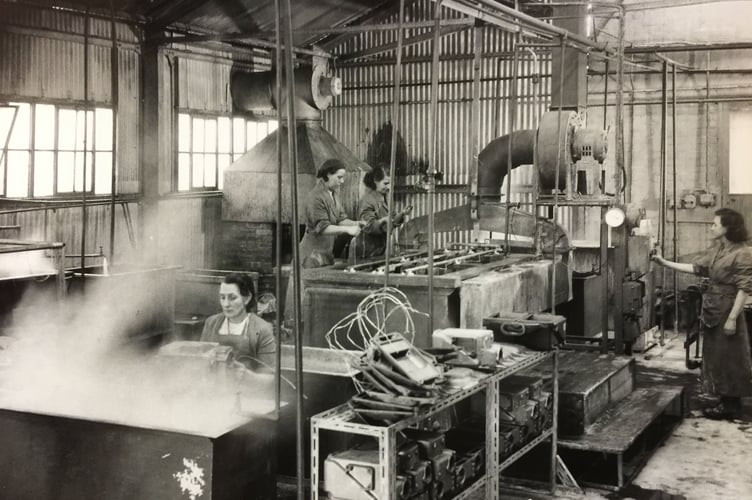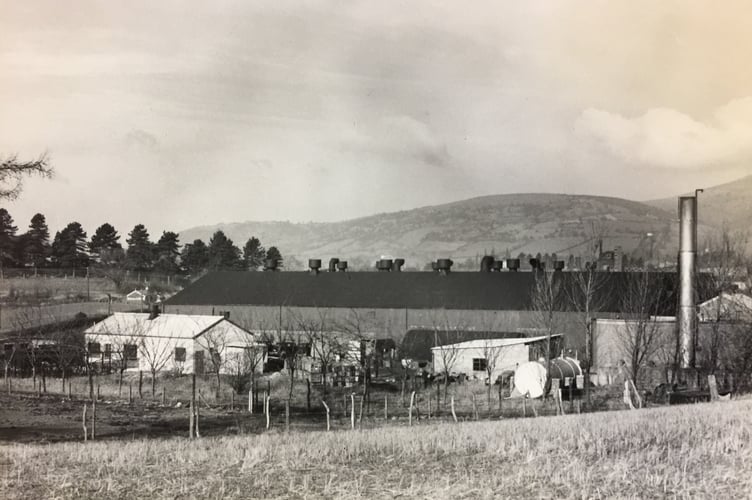WORKING nine to five it’s so hard to make a living. Harder still nowadays because the jobs just aren’t there. Of course, back in the day when employment was plentiful and the fat of the land could feed us all, there was one employer in the Abergavenny area who paid the wages of a lot of local ladies and gents - Coopers Mechanical Joints.

Before Llanfoist turned into an urban sprawl and boasted its very own retail park, Coopers dominated the Llanfoist skyline in much the same sort that Morrisons now does in Aber.

And the story of how it all began, like so many stories, had its genesis in the Second World War.
The Lang Pen Company touched down in this neck of the woods for the sole reason of manufacturing radiators for that most British of planes - the Spitfire.
To that end, Llanfoist became the location and a new factory was built.
Employment surged as employees did their bit to keep the flag flying for the war effort. In the aftermath of the historical conflict, there was no need for Spitfires and the Llang Pen Company vacated the premises and left the factory to stand idle for a period.

The factory was saved from becoming derelict when Coopers Mechanical Joints of Slough picked up the reins and within a year it was employing a workforce of 325

Rapid expansion soon followed and in 1961 significant extensions at the rear and front of the factory took place.
By this time business was booming. Coopers' main products were engine components and it soon became a badge of pride that most vehicles on our roads contained a part manufactured at Coopers.
It was also a proud boast that all the filters for the London buses came from Coopers.
In 1966 a Manchester firm called Turner and Newall, who knew a good thing when they saw it, bought the Llanfoist company and changed its name to Coopers Filters.

In 1988 the Italians moved in. The filtration company Fiaam Spa took over and pumped eight million pounds worth of new machinery and equipment into a major development programme for Coopers.

It worked! Things had never been so good.
But as we all know, after every boom comes a bust. In January 2004 Coopers Factory was subjected to the ignoble verdict of the wrecking ball and the bombastic glee of the bulldozer.
Newport-based development firm Johnsey Estate Ltd had purchased the site with an eye to building a new housing estate, and the rest is history.





